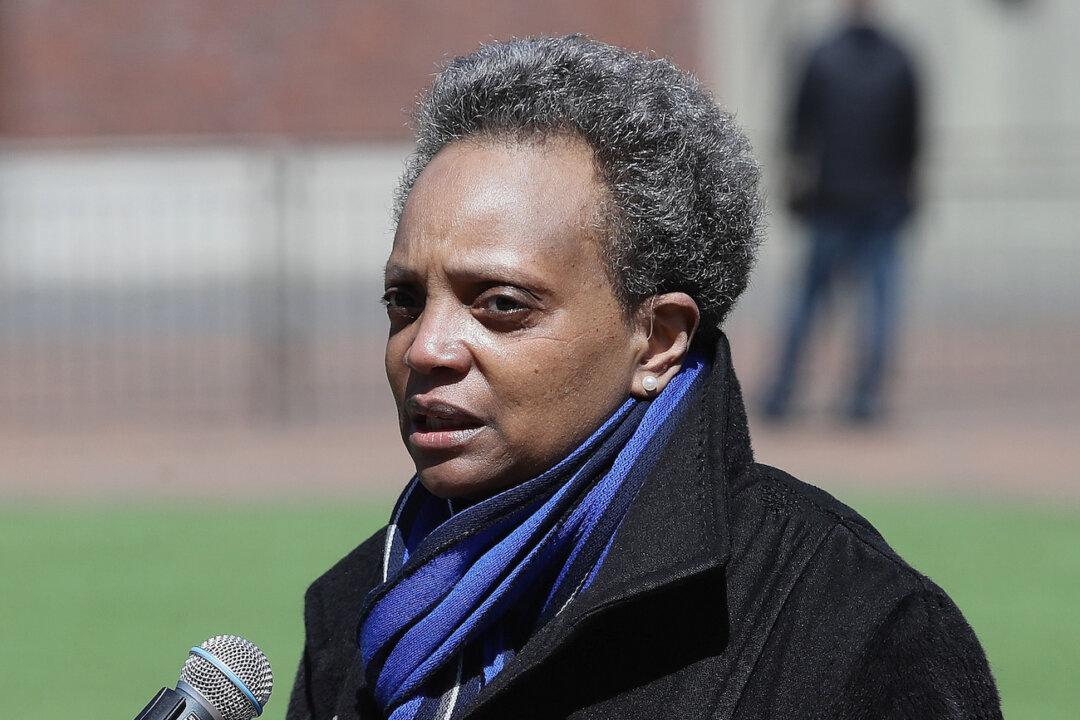Chicago Mayor Lori Lightfoot on Thursday defended the Chicago Police Department banning protesters from demonstrating on the block where she lives, saying that she has been receiving threats on a daily basis.
“I think that residents of this city, understanding the nature of the threats that we are receiving on a daily basis, on a daily basis, understand I have a right to make sure that my home is secure,” the Democratic mayor said, reported the Chicago Tribune, regarding threats against her, her partner, and her home.




